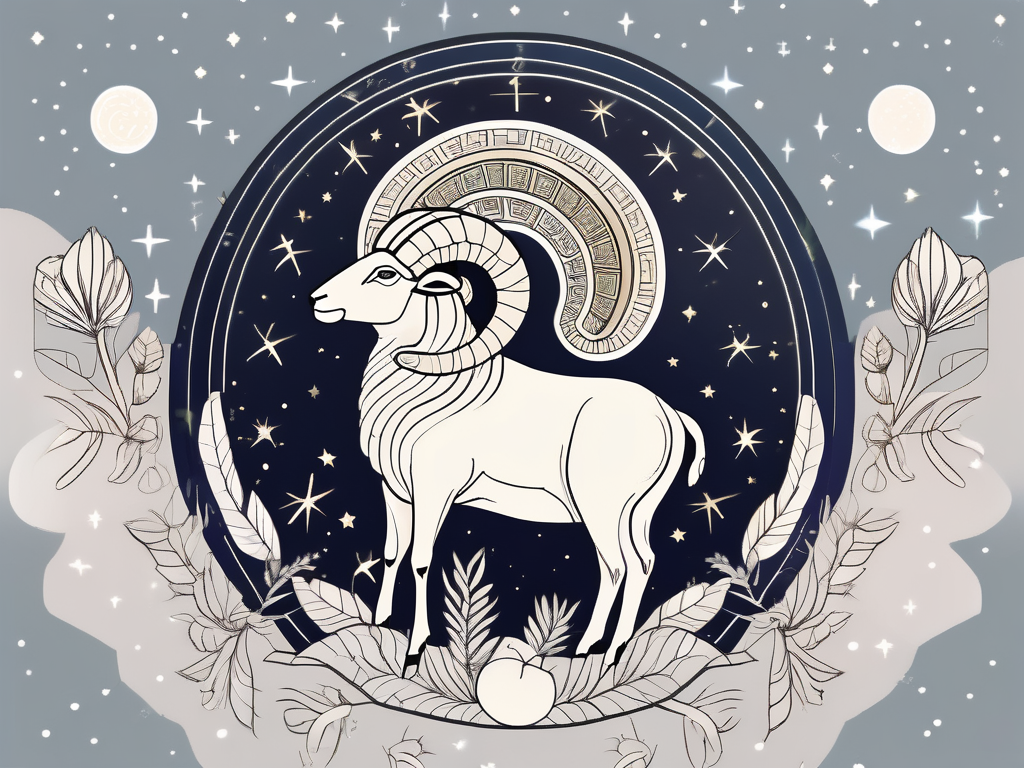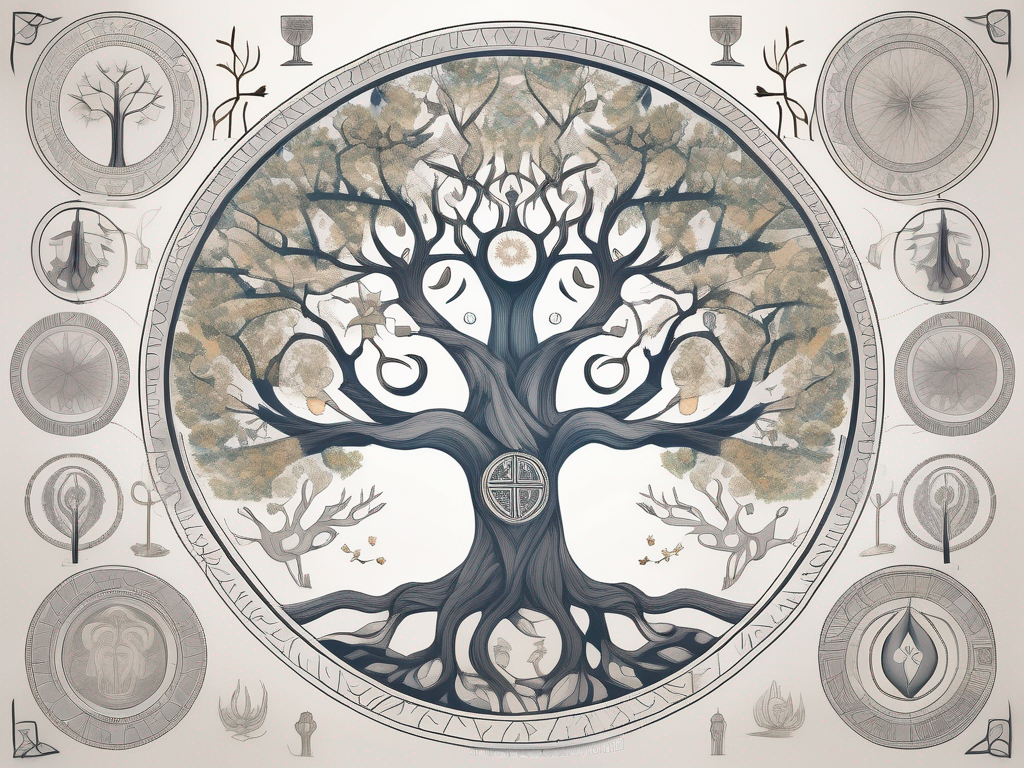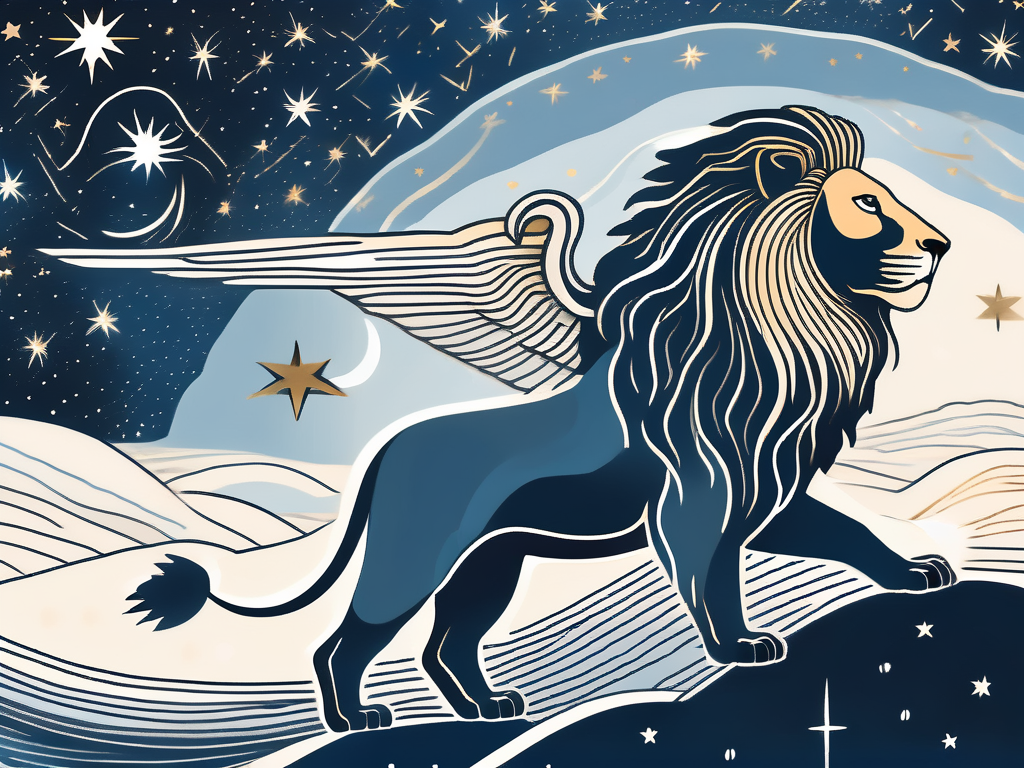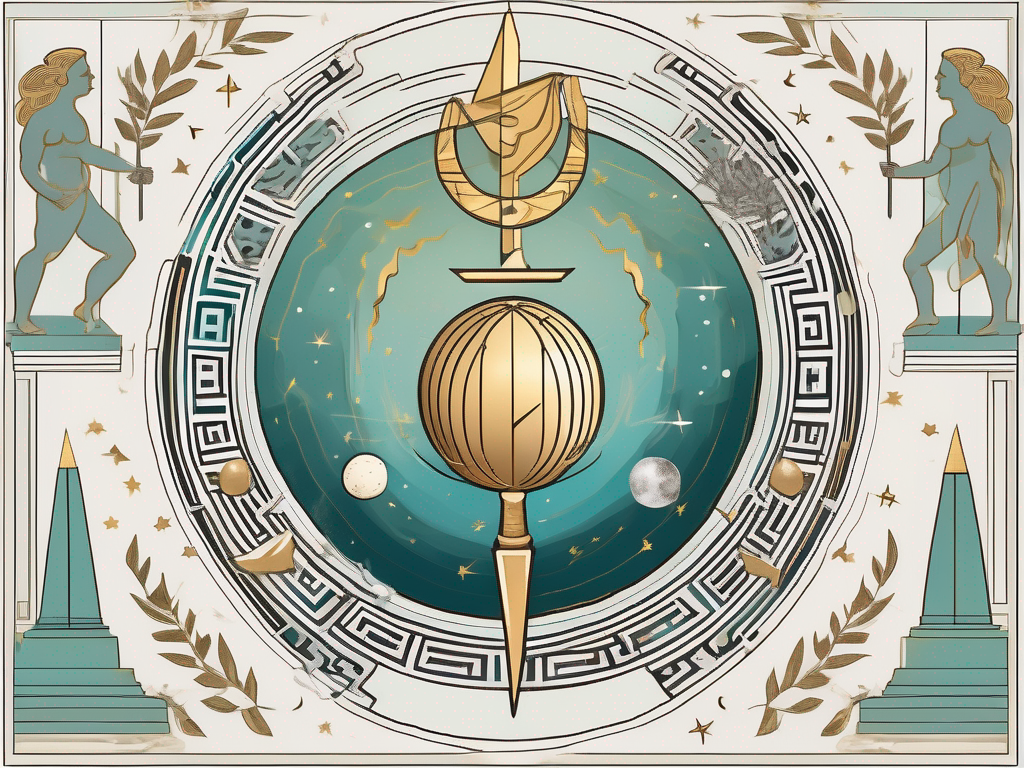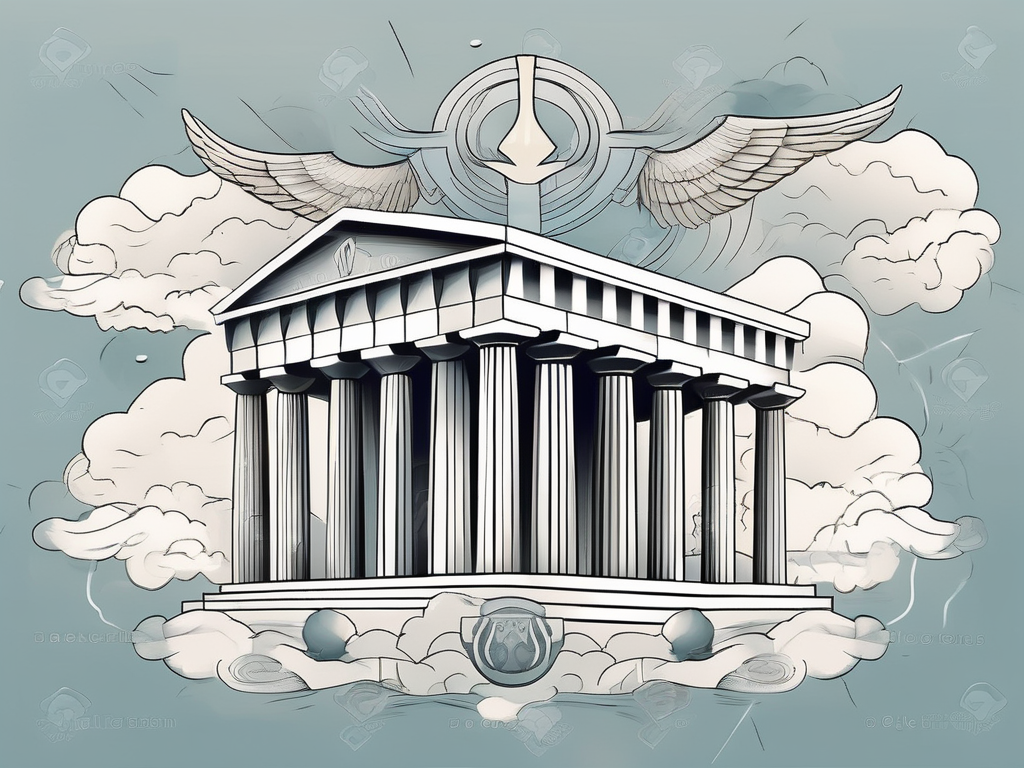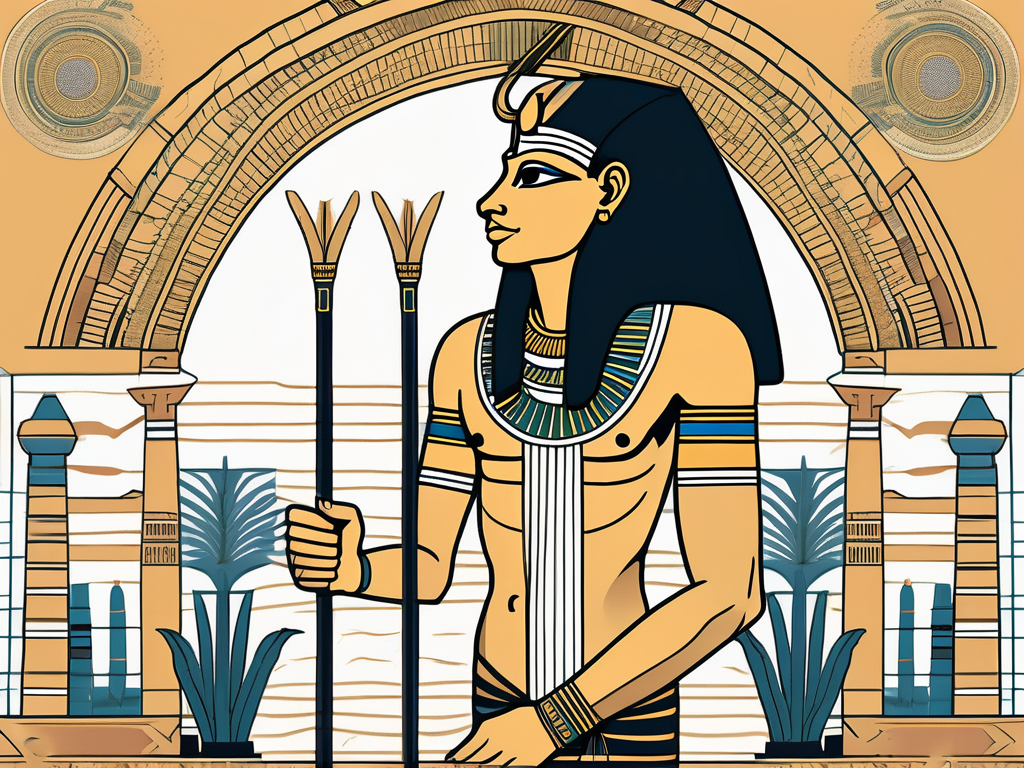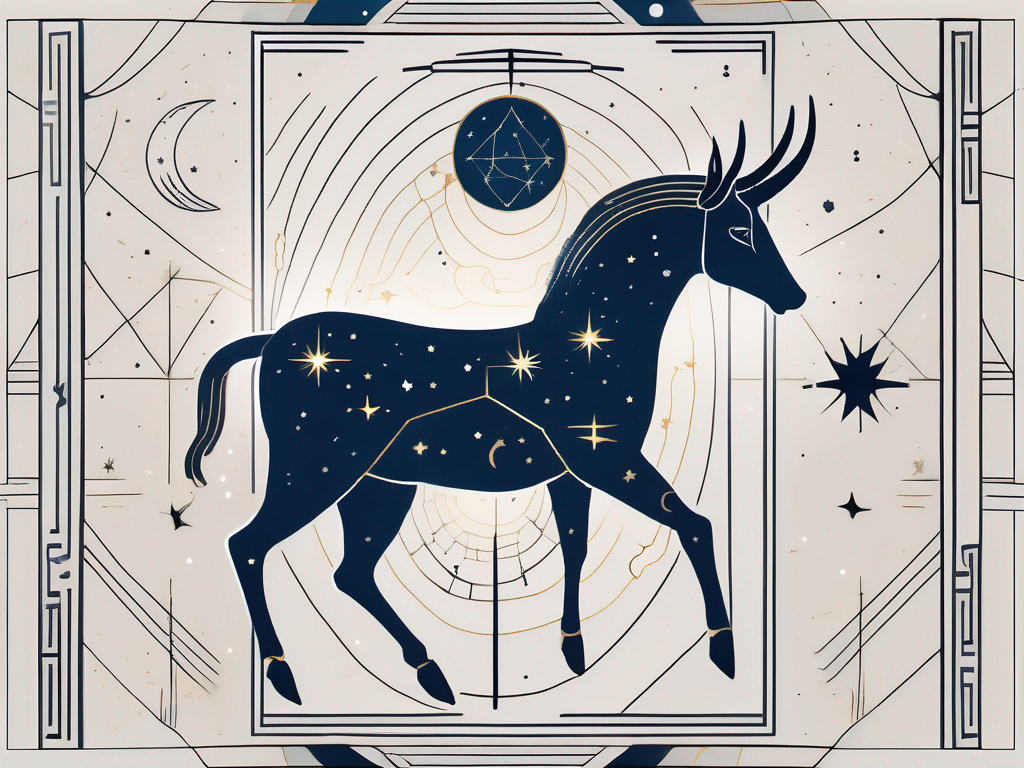Crios, one of the lesser-known Greek gods, holds a fascinating place in Greek mythology. With his connection to constellations and fertility, Crios carries a powerful symbolism that has captivated scholars for centuries. In this article, we will dive into the mythology surrounding Crios, explore his role and responsibilities, examine his ties to the constellations, delve into his fertility aspects, and unravel his significance in modern culture.
Understanding the Mythology of Crios
Let’s start by delving into the mythology surrounding Crios. Like many ancient Greek gods, Crios has a unique origin story. According to Greek mythology, Crios is one of the Titans, the divine beings who ruled before the Olympian gods.
The Titans were a powerful and ancient race of gods, born from the primordial deities Uranus and Gaia. Crios, as the son of Uranus, the sky god, and Gaia, the earth goddess, held a significant position among his siblings.
Together with his siblings – Oceanus, Coeus, Hyperion, Cronus, Theia, Rhea, Themis, Mnemosyne, Phoebe, Tethys, and Prometheus – Crios formed the first generation of Titans. Each of these Titans represented various aspects of the natural world, contributing to the balance and order of the universe.
The Origins of Crios in Greek Mythology
Crios, like his siblings, played a vital role in shaping the cosmos. The Titans were responsible for maintaining the harmony between the heavens and the earth, ensuring the smooth operation of the natural cycles.
As the son of Uranus and Gaia, Crios inherited his parents’ powers and characteristics. He possessed the strength and stability of the earth, as well as the vastness and expansiveness of the sky. These qualities made him a formidable force in Greek mythology.
While Crios’ name may not be as widely recognized as some of his siblings, his influence was far-reaching. He played a crucial role in the celestial realm, overseeing the movement of the sun through the zodiac. Crios was associated with the constellation Aries, symbolizing his connection to the changing seasons and the fertility of the earth.
Crios’ Role and Responsibilities
As the guardian of the sun’s path through the zodiac, Crios ensured the proper progression of the seasons. His presence and influence were felt in the bountiful harvests, the flourishing of flora and fauna, and the overall well-being of the natural world.
Crios’ role as a Titan extended beyond his responsibility for the changing seasons. He embodied stability and endurance, qualities that were highly revered in ancient Greek culture. The Titans, including Crios, were often depicted as powerful and imposing figures, representing the forces of nature and the eternal cycle of life.
The Symbolism of Crios
Crios’ symbolism goes beyond his association with constellations and fertility. As a Titan, he represented the unwavering strength and resilience of the natural world. His presence in Greek mythology served as a reminder of the enduring power of nature and its ability to shape and sustain life.
Furthermore, Crios’ symbolism reflected the interconnectedness of the elements and the delicate balance required for the harmonious functioning of the universe. His role as a guardian of the sun’s path through the zodiac emphasized the intricate relationship between celestial bodies and earthly phenomena.
In conclusion, Crios, as a Titan in Greek mythology, held a significant position among the divine beings who ruled before the Olympian gods. His role as the guardian of the sun’s path through the zodiac and his association with constellations and fertility made him an essential figure in shaping the natural world. Crios’ symbolism represented stability, endurance, and the enduring power of nature, reminding us of the intricate interconnectedness of the cosmos.
Crios and the Constellations
Now, let’s explore the connection between Crios and the stars. In Greek mythology, gods and goddesses often had strong ties to specific constellations, and Crios is no exception.
Crios, one of the Titans in Greek mythology, is closely associated with the constellation Aries, which represents the ram. It is said that Crios placed the ram among the stars as a celestial tribute. This connection between Crios and Aries highlights the significance of this divine figure in the celestial realm.
Aries, the first sign of the zodiac, symbolizes beginnings, leadership, and new horizons. As the ram, it embodies qualities such as courage, determination, and assertiveness. These traits are believed to be influenced by Crios, further emphasizing his role as a powerful deity.
The Constellations Associated with Crios
While Aries is the primary constellation connected to Crios, other constellations also carry significant meaning in relation to this divine figure. Taurus, the bull, represents strength and determination. It symbolizes the unwavering nature of Crios and his ability to overcome challenges with resilience.
Gemini, the twins, symbolizes duality and versatility. This constellation serves as a reminder of Crios’ multifaceted nature and his ability to adapt to different situations. It represents his influence over various aspects of life, from relationships to communication.
These constellations, Taurus and Gemini, further highlight the universal influence of Crios. They demonstrate the breadth of his power and the diverse areas of life that he governs.
Astrological Significance of Crios
In astrology, Crios’ connection to Aries holds great significance. People born under the sign of Aries are believed to possess qualities associated with leadership, enthusiasm, and assertiveness. They are known for their strong will and determination, traits that are believed to be influenced by the celestial presence of Crios.
Individuals born under the sign of Aries often display the characteristic traits of the ram. They exhibit a fierce determination to achieve their goals and a strong desire for success. Their leadership skills and ability to take charge make them natural-born leaders.
Furthermore, the influence of Crios extends beyond just the sign of Aries. As a powerful deity associated with multiple constellations, his influence can be felt across various astrological signs. The qualities and characteristics associated with Crios are not limited to Aries alone, but can be found in individuals born under different signs as well.
In conclusion, the connection between Crios and the constellations is a testament to the rich mythology and symbolism that permeates Greek culture. The celestial tribute of the ram in the form of the constellation Aries, along with the associations with Taurus and Gemini, showcases the profound influence of Crios in the celestial realm and the impact he has on individuals born under different astrological signs.
Crios as a Fertility God
Beyond his role in the celestial realm, Crios is also intrinsically tied to fertility. In ancient Greek society, fertility gods played an integral part in the agricultural and social aspects of life.
Agriculture in ancient Greece was the backbone of the economy and the primary source of sustenance for the population. The success or failure of crops directly impacted the well-being of the people, making the worship of fertility gods like Crios of utmost importance.
The Fertility Aspects of Crios
Crios’ association with fertility is rooted in his role as a guardian of the sun’s path through the zodiac. This connection links him to the changing of the seasons and the cycles of nature. As the sun traversed the zodiac, Crios was believed to exert his influence on the fertility of the land.
During the spring equinox, when the sun entered the zodiac sign of Aries, Crios’ power peaked. This was a time of great celebration and anticipation as it marked the beginning of the planting season. Farmers would gather to honor Crios and pray for his blessings upon their fields.
As the sun moved through the zodiac, Crios’ influence waned, but his presence remained ever-present. The changing seasons were seen as a reflection of Crios’ power, with the fertile abundance of summer giving way to the dormant period of winter.
Rituals and Worship of Crios in Ancient Greece
Ancient Greeks honored Crios through various rituals and worship practices. They believed that by appeasing Crios, they could ensure bountiful harvests and healthy livestock. Offerings, such as fruits, grains, and livestock, were made to Crios as a sign of gratitude and reverence.
One of the most significant rituals dedicated to Crios was the annual fertility festival held in his honor. This grand celebration brought together communities from far and wide to partake in feasts, music, and dance. The festival was a time of joy and merriment, as people expressed their gratitude for the abundance bestowed upon them by Crios.
During the festival, farmers would bring the first fruits of their harvest as offerings to Crios. These offerings symbolized the beginning of the agricultural cycle and the promise of a fruitful year ahead. The fruits were carefully arranged on altars, adorned with flowers and garlands, as a testament to the beauty and abundance of nature.
The Influence of Crios on Agriculture and Harvest
Crios’ influence on agriculture was profound. Farmers and agriculturalists looked to Crios for guidance and protection throughout the planting and harvesting seasons. His connection to the cyclic nature of life and fertility served as a reminder of the importance of working harmoniously with the earth and its natural rhythms.
As the crops grew, farmers would perform rituals to honor Crios and ask for his continued blessings. They believed that by maintaining a strong relationship with Crios, they could ensure the health and vitality of their crops. These rituals often involved prayers, songs, and dances, all aimed at invoking Crios’ favor.
Harvest time was a time of great celebration and thanksgiving. As the fields were reaped, the bounty of the land was collected and shared among the community. Festivals were held to honor Crios and express gratitude for the abundance provided by his divine influence.
Through their devotion to Crios, the ancient Greeks recognized the interconnectedness of humanity and nature. They understood that by respecting and honoring the fertility gods, they could live in harmony with the cycles of life and ensure their own prosperity.
Crios in Modern Culture
Although ancient Greek mythology may seem distant, Crios’ legacy persists in modern culture. His presence can still be felt in various aspects of society.
Crios’ Influence on Modern Astrology
In contemporary astrology, Crios’ association with Aries continues to impact our understanding of this zodiac sign. Aries individuals are often described as passionate, ambitious, and eager to take on challenges. The influence of Crios can be seen in the emphasis on leadership and initiation traits typically associated with those born under this sign.
References to Crios in Literature and Art
Crios has also left his mark on literature and art. His depictions can be found in various ancient texts, sculptures, and paintings. Poets and playwrights often referenced Crios and his role in mythology, showcasing his enduring presence in popular discourse.
The Legacy of Crios Today
While Crios may not be as widely recognized as Zeus or Athena, his significance in Greek mythology cannot be overlooked. As we delve deeper into the stories of lesser-known gods like Crios, we uncover a rich tapestry of cultural heritage that continues to shape our understanding of the world around us.
In conclusion, Crios, the Greek god of constellations and fertility, holds a compelling place within ancient Greek mythology. From his origins as a Titan to his connections to the constellations and his role in fostering fertility, Crios exemplifies the interplay between the divine and the natural world. As we explore his mythology, we gain a deeper appreciation for the complex web of relationships that formed the foundation of ancient Greek culture.
